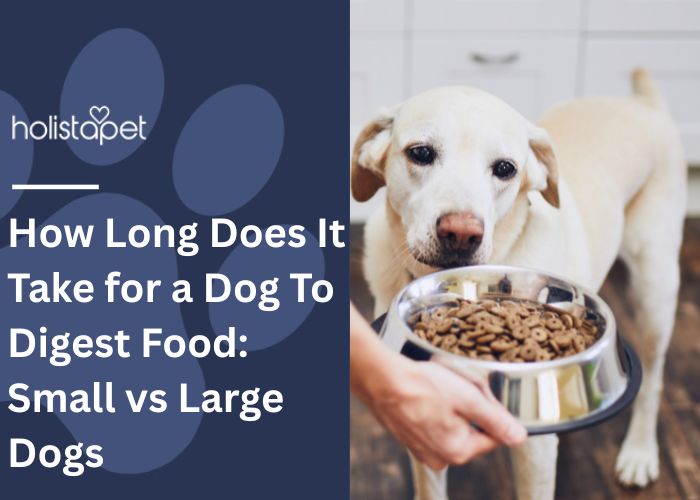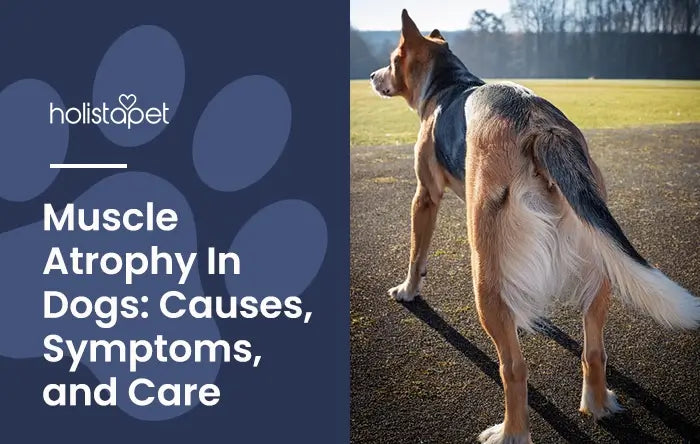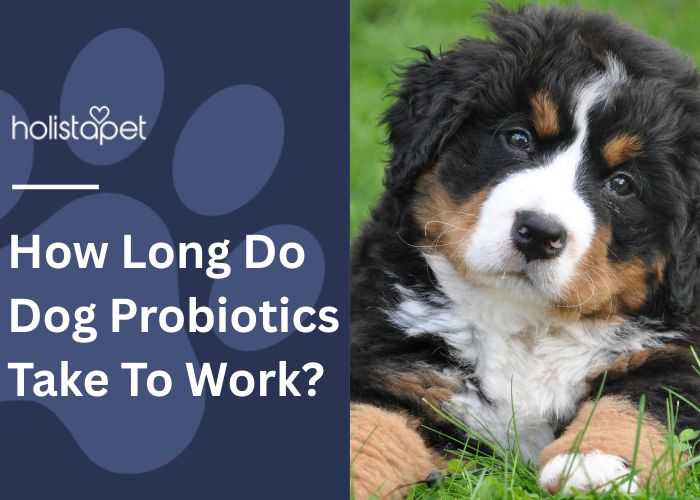How long does it take for a dog to digest food? Most pups need hours, not minutes, to fully process a meal. Their size, age, and diet influence how long food stays in their system.
Smaller breeds often zip through meals quicker, while larger ones take their time. Food type matters, too. Curious to learn more? Then keep reading!
Defining Dog Digestion Time

A dog's digestion time refers to the hours it takes for their food to move from the bowl to the backyard. It starts the moment they eat and ends when waste leaves their body. Most dogs process food within several hours, but the total cycle can stretch into a full day.
Digestion time is not the same for every canine. A small dog may break down food faster, while a larger breed may take longer. Food type also plays a role, with wet meals moving more quickly through the digestive system.
Understanding the Dog Digestive System
Your canine pet's digestive system works like a busy factory, breaking down every bite into smaller parts. Food travels through a series of organs, each with a specific job. Along the way, nutrients get absorbed into the body to fuel energy, growth, and overall health.
The process starts in the mouth, moves down the esophagus, and lands in the stomach for breakdown. From there, the small intestine continues the work of absorbing nutrients. Finally, the large intestine handles water balance and prepares waste for elimination.
Key Organs in the Digestive Process
Your dog's stomach is the main mixer, churning food into smaller bits for easier breakdown. Digestive enzymes begin to turn food into usable energy. From there, the small intestine takes over and focuses on nutrient uptake.
The large intestine works on moisture balance and forms solid stool. The liver and pancreas add extra digestive help with enzymes and bile. Together, these organs create an efficient system that keeps your dog's body fueled and ready for play.
How Digestion in Dogs Differs from Humans
Canines digest food much faster than humans. Their stomach acids are stronger, which helps break food down quickly and handle raw proteins more easily. While humans may need a full day or longer to process a meal, dogs often move food through their system in less time.
Another difference is chewing. People grind food into small pieces before swallowing, but dogs often gulp larger chunks. Their digestive system is cleverly designed to manage this style of eating, moving food into the stomach for heavy-duty breakdown.
How Long Does It Take for Dogs To Digest Food and Poop?

Most dogs need about 6 to 10 hours to process food and pass waste, though the full cycle can stretch up to 12 hours or more. The digestive process begins when a dog eats, with food breaking down in the stomach. Next, nutrients move through the small intestine for absorption. The large intestine then takes over, forming stool and managing water balance. Factors like age, size, and food type can shift this schedule.
How Long Does It Take for a Small Dog To Digest Food and Poop?
Small pups usually digest food faster than their larger buddies. On average, it takes them about 4 to 6 hours to move a meal through their system. Their higher metabolism and smaller digestive tract push food along at a quicker pace.
Healthy small breeds often show predictable bathroom habits soon after eating. Wet food may speed up the cycle even more, while dry kibble can take a bit longer. Regular stool and steady energy are good signs of healthy digestion.
How Long Does It Take for a Large Dog To Digest Food and Poop?
Large dogs often take longer to digest food compared to smaller breeds. On average, they need 8 to 12 hours for a full digestive cycle. Their bigger stomach and longer intestinal tract mean food spends more time moving through the system.
Healthy large breeds may not poop until several hours after eating. Dry kibble may slow digestion even more, while wet food often passes faster. Keeping a steady feeding routine helps support regular bathroom schedules in bigger dogs.
Factors That Can Affect a Dog's Digestion Time

Every pup digests food at a different pace, and several factors shape the process. Knowing what influences your dog's gut health makes it easier to spot changes and keep digestion on track.
- Size & Breed. Small dogs often digest food faster, while larger breeds may take longer.
- Age. Puppies process food quicker, while seniors may have slower digestion.
- Type of Food. Wet and raw foods digest faster than dry kibble. High-fat or high-fiber meals can slow things down.
- Health Conditions. Issues like pancreatitis, gastrointestinal disease, or parasites can disrupt normal digestion.
- Metabolism. Naturally fast or slow metabolism can change how quickly food moves through the system.
- Activity Level. Active canines may digest food faster than sedentary dogs.
- Hydration. Adequate water intake helps food move smoothly through the dog's gastrointestinal tract.
- Stress or Anxiety. Emotional state can influence digestion speed, sometimes leading to slower or irregular processing.
Signs of Healthy Dog Digestion
A healthy digestive system shows itself in simple, daily ways. When food breaks down smoothly, dogs can absorb nutrients, stay active, and feel better overall. Spotting the right signs helps you know your dog's gut health is in good shape.
- Regular Stool. Consistent elimination with firm but not hard texture.
- Good Appetite. Steady interest in meals without skipping food.
- Normal Energy. Active play and alert behavior throughout the day.
- Shiny Coat. A smooth coat often reflects proper nutrient uptake.
- Steady Weight. No sudden weight gain or loss when diet remains the same.
When Slow Digestion May Signal a Problem
Slow digestion can point to an issue in your dog's digestive tract. If food lingers too long, it may cause discomfort or irregular bowel movements. While timing can vary, clear changes in habits should raise concern.
Common signs include constipation, bloating, or visible discomfort after meals. Undigested food in stool also hints at trouble with nutrient absorption. If these issues repeat or worsen, it's best to check in with a vet.
How To Support Better Dog Digestion

Supporting your dog's digestive health is not that complicated. Small daily habits can help keep their gut working smoothly and prevent common digestive issues.
- Choosing High-Quality Food
- Consistent Feeding Schedule
- Hydration and Exercise
Choosing High-Quality Food
Food quality matters for healthy digestion. Highly-digestible food helps the stomach and intestines process meals without strain. Wet food often digests faster, while raw food can also support better nutrient absorption when prepared safely. Look for a balanced diet with essential nutrients and minimal fillers. Feeding quality food supports optimal digestion, steady energy, and a healthier gut overall.
Consistent Feeding Schedule
Feeding your pup at the same times each day trains their digestive system to work more efficiently. This steady rhythm helps regulate bowel movements and reduces digestive upset. Adult dogs usually do well with two meals per day, while puppies may need more frequent feeding. Sticking to a schedule also prevents overeating and supports good gut health.
Hydration and Exercise
Water keeps food moving through the digestive tract with ease. A well-hydrated dog absorbs nutrients better and has smoother bowel movements. Always keep fresh water available to support healthy digestion.
Exercise is just as important. Daily walks or play sessions help stimulate the digestive system and prevent sluggishness. Active dogs often enjoy more regular bathroom habits and better overall health.
Fiber and Probiotics
Fiber and probiotics work together to keep your dog's gut health strong. Fiber supports the digestive process by adding bulk to stool and helping food move through the intestinal tract. Probiotics, on the other hand, provide beneficial bacteria that balance the gut and regulate stool consistency.
HolistaPet's Probiotic Soft Chews make it easy to give your furry friend both. These premium chews contain a blend of probiotics and healthy fiber to promote digestion and stool regularity. Made with natural ingredients, they also help reduce upset behaviors tied to nervous stomachs. For a calm and balanced pup, check out our bestselling probiotic chews.
FAQs – Dog Digestion Time

Knowing how your pup's digestive system works helps you support their gut health. Here are common questions about canine digestion and what they mean for your furry friend.
Can a dog's digestive times change over time as they age?
Yes, digestive times often change as dogs grow older. Puppies usually process food quickly because their metabolism runs fast. Adult dogs settle into steadier cycles, while senior pups may slow down due to reduced activity and changes in their digestive tract.
Aging can affect nutrient absorption and stool consistency, too. Seniors may need highly-digestible or smaller meals to support healthy digestion. Paying attention to bathroom habits helps spot when adjustments to diet may be necessary.
What can I do to help my dog digest food better?
You can help your dog digest food better by keeping their meals simple and consistent. Choose a high-quality diet with essential nutrients and avoid sudden food changes that may upset their stomach. Fresh water should always be available to support smooth digestion.
Daily exercise also plays a big role in gut health. Walks, play, and regular activity help food move through the digestive system. Pairing these habits with fiber-rich foods or HolistaPet's probiotics can promote a healthier digestive process.
How long does it take for a senior dog to digest and eliminate food?
Senior dogs usually take longer to digest food compared to younger pups. Their digestive system slows with age, often needing 12 to 16 hours for a full cycle. Reduced mobility and changes in metabolism also affect digestion speed.
Older dogs may show irregular stool or slower bathroom schedules. Feeding highly-digestible food in smaller portions can help. Regular vet checkups make sure senior dogs maintain good gut health and steady nutrient absorption.
What is the most common initial sign of dog digestive issues?
One of the first signs of digestive issues in dogs is a change in stool. Loose, hard, or irregular bowel movements often point to trouble in the digestive system. Sometimes undigested food shows up in the stool as well.
Other early signs can include reduced appetite or visible discomfort after meals. If these issues appear and continue, it's smart to check with a vet. Catching problems early helps protect your dog's digestive health.
Final Thoughts on Digestion Times in Dogs
Dog digestion times vary, but most pups fall into predictable cycles based on size, diet, and age. Watching bathroom habits and feeding quality food helps keep their gut health strong. A healthy digestive system means better energy, nutrient absorption, and overall comfort for your furry friend.
For extra support, HolistaPet offers wellness products designed with natural ingredients to promote healthy digestion and calm. With our probiotic chews, you can help maintain balance in your dog's body. A happy gut leads to a happier pup.
Find more dog care articles here.


 CBD Oil for Dogs - Fast Acting
CBD Oil for Dogs - Fast Acting
 Chicken Flavored CBD Oil For Dogs - Easy Dose
Chicken Flavored CBD Oil For Dogs - Easy Dose
 Salmon Flavored CBD Oil For Dogs - Highly Rated
Salmon Flavored CBD Oil For Dogs - Highly Rated
 CBG Oil for Dogs and Cats - Loved by Thousands
CBG Oil for Dogs and Cats - Loved by Thousands





Leave a comment
All comments are moderated before being published.
This site is protected by hCaptcha and the hCaptcha Privacy Policy and Terms of Service apply.